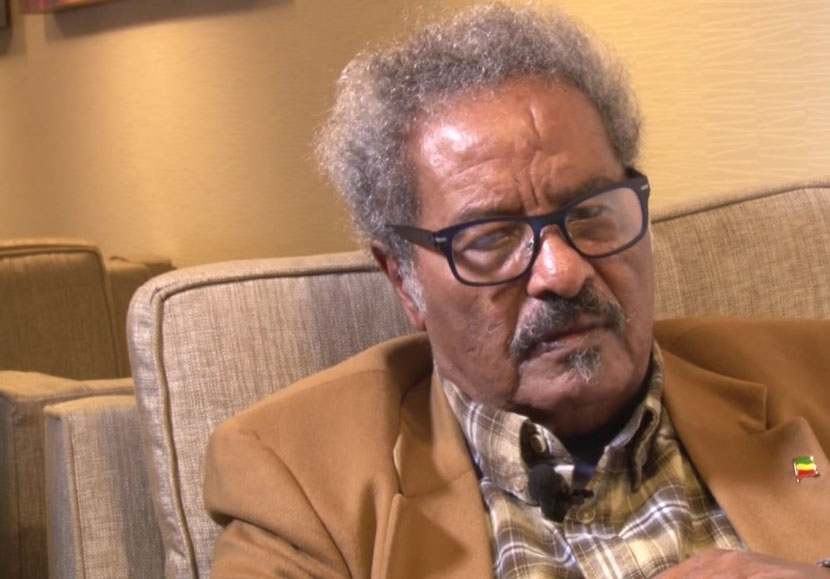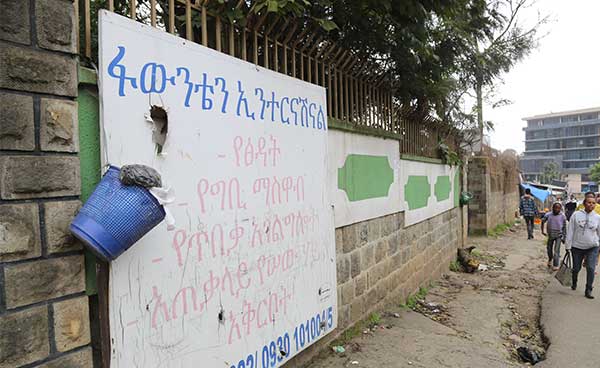
Fineline | Dec 25,2018
Feb 6 , 2021
By Kidist Yidnekachew
Many Ethiopians are not vain. People do help one another and share what they can, but when it comes to giving information, many of us are reserved. This is not about gossiping or not keeping secrets but sharing what we know with a stranger.
The minute we are approached by someone we have not met before, many of us get defensive. It could be because of our culture of keeping our personal information to ourselves. The celebrity culture here is not as profound as it is in the West, mainly because it is a conservative country. It may also have to do with the perception of government censorship – and we have historically have not had a good experience with this.
It was not long ago that I observed a friend’s interview of strangers for his YouTube show. His questions were mainly about technology. Some of the people we came across were willing to tell us what they know and answer our questions. But it was not like that most of the time.
Some of them crossed the road when they saw us coming. Some of them shook their heads and declared that they would pass. It was an astounding phenomenon that we would cause these many people alarm. It would have been even more surprising had I not been aware of this while doing research for my university degrees.
It was for my thesis that I carried out the research. The study participants to whom I needed to distribute questionnaires were university students. The second I approached, they would be suspicious and did not want to take part. I tried to be friendly, but most were not interested. This was even though I was inside the campus and that they knew I was a fellow student.
On other occasions, I handed out pamphlets on the street. Both times, people did not want to take the piece of paper. Those who managed to take the flyers would immediately throw them away.
Why would anyone take it in the first place only to chuck them?
I remember the first time I handed out pamphlets. I was nervous for the first half an hour. I was standing there, evaluating and observing strangers. Finally, I opted for younger women as they seemed more relaxed and approachable. Men scared me in that instance as there was the possibility that they would either make a pass at me or, even worse, assume that I was trying to get attention.
This is why I feel a great deal of sorrow for people who stand in the sun all day, handing out flyers to strangers who happen to pass by. Most actually get paid for it (small amount) and are not really concerned whether the flyers reach people who seem interested in what is being advertised.
They would not care what people do with the flyers as long as it is out of their hands. Yes, sometimes, it is just because they are lazy. But it is also the fact that it is complex to deal with strangers in Ethiopia.
There is very little perceivable harm in receiving a piece of paper. Worst case scenario, the paper is nonsense and would end up in the trashcan. It could also have a bit of information that could change our lives.
Likewise, agreeing to be in an interview or filling out a questionnaire would not hurt us but benefit the other person looking for the information. Sure, we might not be comfortable answering personal questions, especially those that have to do with our political views or relationships. But as long as it is anonymous, it should be fine.
If only we know the courage and confidence it takes to stand in front of strangers and engage in a conversation with them, we would realise the initiative and dedication these people possess. We should salute them instead of closing the door.
For those who are conducting such work and have to approach strangers, they should also take certain measures to win trust and assure that the information will not be used for the wrong purposes. Identification that shows the purpose of the work and the institutions they work for, especially where questionnaires are involved, is critical. It is not unwarranted to be wary of our data, as the age of social media has shown.
PUBLISHED ON
Feb 06,2021 [ VOL
21 , NO
1084]


Fineline | Dec 25,2018

Verbatim | Nov 17,2018

Commentaries | Aug 24,2019

Fineline | Mar 16,2019

News Analysis | Jan 05,2020

Life Matters | Jan 31,2021

Fortune News | Sep 18,2021

Featured | Sep 21,2019

Viewpoints | Apr 26,2019


Photo Gallery | 178434 Views | May 06,2019

Photo Gallery | 168634 Views | Apr 26,2019

Photo Gallery | 159439 Views | Oct 06,2021

My Opinion | 137076 Views | Aug 14,2021
Commentaries | Oct 25,2025

Dec 22 , 2024 . By TIZITA SHEWAFERAW
Charged with transforming colossal state-owned enterprises into modern and competitiv...

Aug 18 , 2024 . By AKSAH ITALO
Although predictable Yonas Zerihun's job in the ride-hailing service is not immune to...

Jul 28 , 2024 . By TIZITA SHEWAFERAW
Unhabitual, perhaps too many, Samuel Gebreyohannes, 38, used to occasionally enjoy a couple of beers at breakfast. However, he recently swit...

Jul 13 , 2024 . By AKSAH ITALO
Investors who rely on tractors, trucks, and field vehicles for commuting, transporting commodities, and f...

Oct 25 , 2025
The regulatory machinery is on overdrive. In only two years, no fewer than 35 new pro...

Oct 18 , 2025
The political establishment, notably the ruling party and its top brass, has become p...

Oct 11 , 2025
Ladislas Farago, a roving Associated Press (AP) correspondent, arrived in Ethiopia in...

Oct 4 , 2025
Eyob Tekalegn (PhD) had been in the Governor's chair for only weeks when, on Septembe...

Oct 25 , 2025 . By YITBAREK GETACHEW
Officials of the Addis Abeba's Education Bureau have embarked on an ambitious experim...

Oct 26 , 2025 . By YITBAREK GETACHEW
The federal government is making a landmark shift in its investment incentive regime...

Oct 29 , 2025 . By NAHOM AYELE
The National Bank of Ethiopia (NBE) is preparing to issue a directive that will funda...

Oct 26 , 2025 . By SURAFEL MULUGETA
A community of booksellers shadowing the Ethiopian National Theatre has been jolted b...